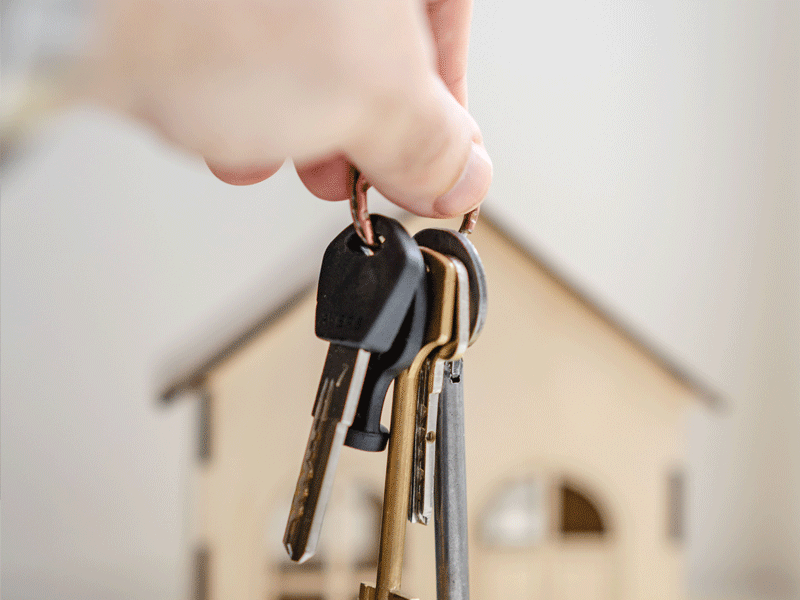Table of Contents
Are you a landlord considering a 1031 exchange? If so, you’re not alone. Many landlords are taking advantage of 1031 exchanges to defer their capital gains taxes and reinvest their profits into new property purchases.
But with any complex financial transaction, there are bound to be questions. Before you move forward with a 1031 exchange, make sure you understand the answers to these frequently asked questions:
What is a 1031 exchange?
A 1031 exchange is a tax-deferred exchange of investment or business property held for productive use in trade or business or for investment. The like-kind exchange allows an investor to sell one property and purchase another without having to recognize the gain on the sale of the first property.
To qualify for a 1031 exchange, the following requirements must be met:
-The property must be held for productive use in trade or business or for investment.
-The property must be exchanged for like-kind property.
-The exchange must be completed within 180 days of the sale of the first property.
-The exchange must be conducted through a qualified intermediary.
What are the benefits of a 1031 exchange?
There are several benefits of conducting a 1031 exchange, including deferring capital gains taxes and reinvesting profits into new property purchases. By deferring taxes, investors can potentially save thousands of dollars that would otherwise be paid in taxes. Additionally, 1031 exchanges provide a way to grow your investment portfolio without having to pay taxes on the sale of your first property.
What type of property qualifies for a 1031 exchange?
In order to qualify for a 1031 exchange, the property must be held for productive use in trade or business or for investment. This includes properties such as office buildings, retail centers, warehouses, apartments, and single-family homes. The property must also be exchanged for like-kind property, which means that it must be of the same nature or character. For example, you could exchange an office building for another office building, but you could not exchange an office building for a warehouse.
What is the 180-day timeline?
The 180-day timeline is the period of time in which the exchange must be completed. This timeline starts on the date of the sale of the first property and ends 180 days later. The exchange must be completed within this timeframe in order to qualify for tax-deferred treatment.
What is a qualified intermediary?
A qualified intermediary is a third party that facilitates the exchange by holding the proceeds from the sale of the first property and transferring them to the purchase of the second property. The qualified intermediary must meet certain requirements set forth by the IRS, including being a licensed attorney, real estate broker, or title insurance company.
How can I be sure that my exchange will qualify?
The best way to ensure that your exchange will qualify is to consult with a qualified tax professional prior to entering into the exchange. They can help you determine if your property qualifies and assist you in completing the exchange.
What are the risks of a 1031 exchange?
There are a few risks to be aware of when conducting a 1031 exchange, including the risk of not being able to find a suitable replacement property, the risk of not completing the exchange within the 180-day timeline, and the risk of paying taxes if the IRS disallows the exchange. However, these risks can be mitigated by working with a qualified tax professional and carefully planning your exchange.
Will I owe taxes if I don’t complete my 1031 exchange?
If you don’t complete your 1031 exchange, you will be liable for capital gains taxes on the sale of your first property. Additionally, you will not be able to defer the taxes by rolling them into a new purchase.
Can I do a 1031 exchange at my personal residence?
No, you cannot do a 1031 exchange on your personal residence. In order to qualify for a 1031 exchange, the property must be held for productive use in trade or business or for investment. A personal residence does not qualify as it is not used for business or investment purposes.
Can I do a 1031 exchange with multiple properties?
Yes, you can do a 1031 exchange with multiple properties. This is often referred to as a “like-kind exchange” or a “relinquished property.” In order to qualify, the properties must be exchanged for like-kind property of equal or greater value. For example, you could exchange two rental properties for one larger rental property.
What happens if I sell my property for a profit?
If you sell your property for a profit, you will be liable for capital gains taxes on the sale. However, if you conduct a 1031 exchange, you may be able to defer the taxes by rolling them into a new purchase.
What happens if I sell my property at a loss?
If you sell your property at a loss, you may be able to deduct the loss from your other income on your tax return. However, if you conduct a 1031 exchange, you will not be able to deduct the loss as the exchange is designed to defer taxes on the sale of your property.
Can I do a 1031 exchange with a property that I own in another state?
Yes, you can do a 1031 exchange with a property that you own in another state. In order to qualify, the property must be exchanged for like-kind property of equal or greater value. For example, you could exchange a rental property in Texas for a rental property in California.

